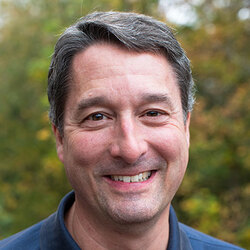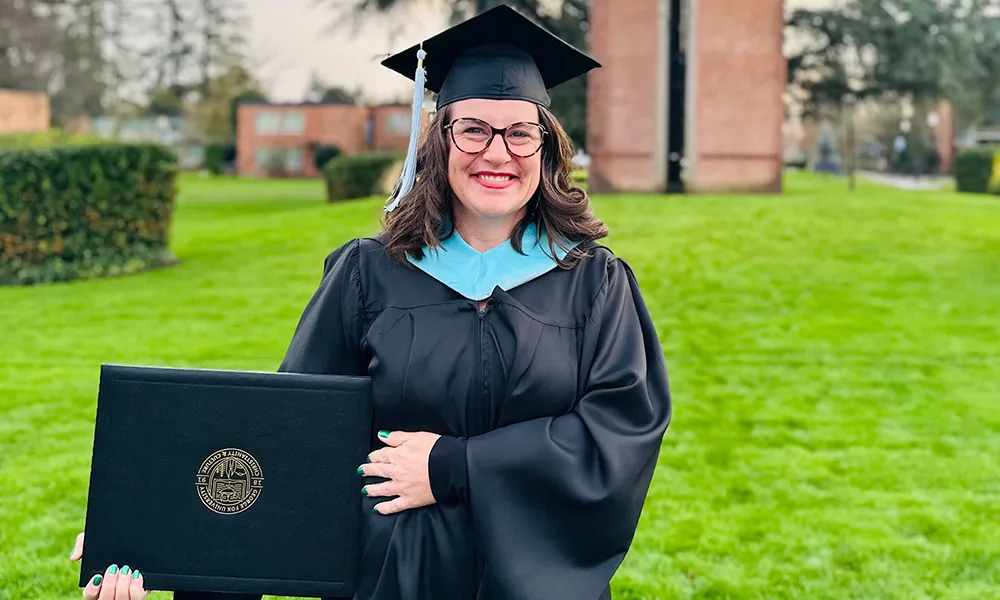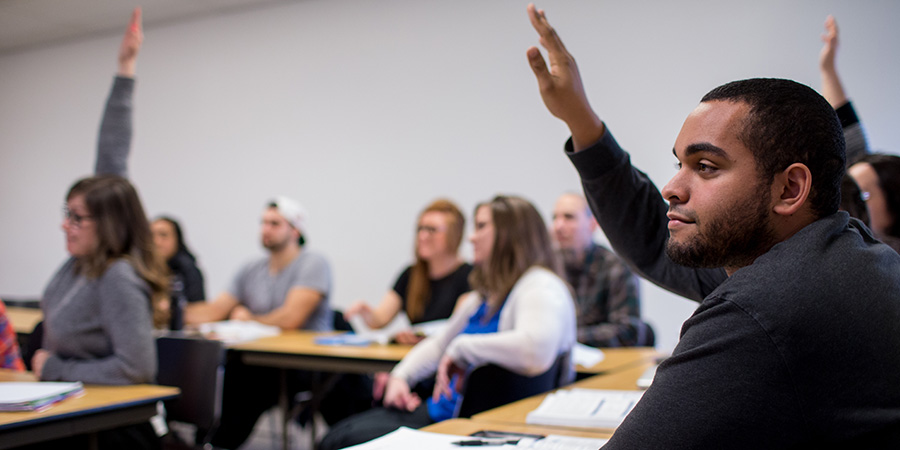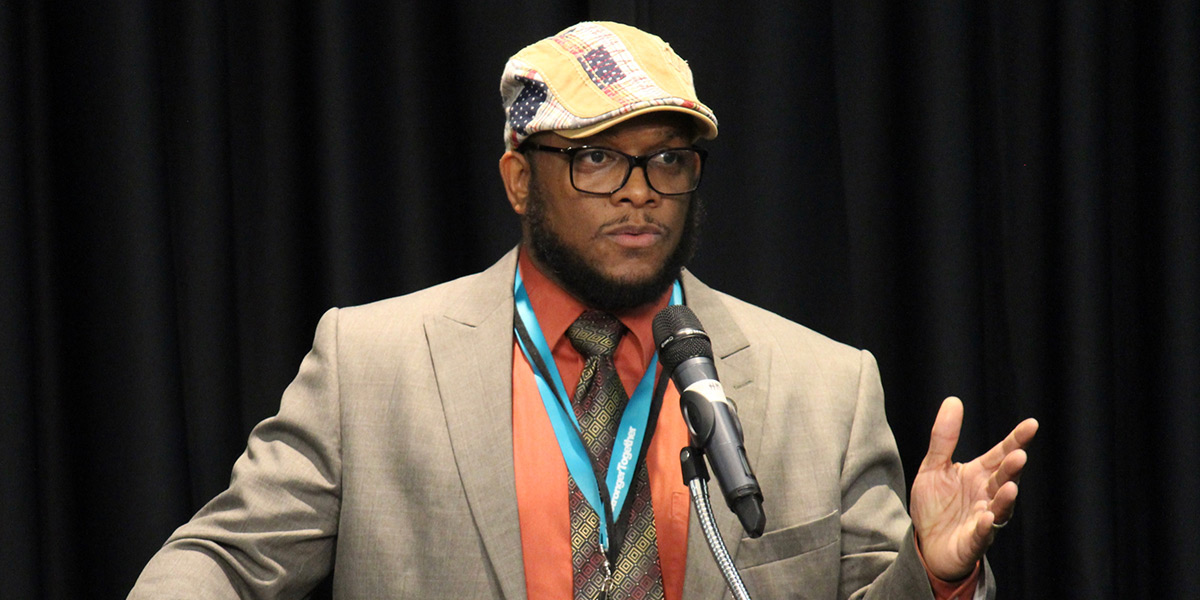
Educating the Educators
by Sean Patterson
Todd Bloomquist uses his expertise in brain neuroscience to help equip teachers and promote community wellness in rural Oregon school districts
He doesn’t spend a lot of time in classrooms, and his interactions with teachers and administrators are brief, but Todd Bloomquist’s impact on the education system in Oregon can’t be underestimated.
Though not a teacher nor an administrator – he stepped down from a 31-year career in K-12 education in 2022 – Bloomquist is still playing a role in how the youth of the state learn. As a senior program officer in the children, youth and families department of the Ford Family Foundation, he travels to school districts in Oregon and Siskiyou County, California, to share resources that educate teachers and promote overall community wellness.
Specifically, his area of expertise centers on the neurology of the brain and how it relates to a child’s ability to learn and retain information. Meeting with superintendents and other district leaders, he uses the knowledge gained from his doctoral degree at George Fox and his training in the area of Adverse Childhood Experiences to help educators develop effective teaching pedagogy.
“The question comes up all the time: ‘How do I get my students to retain information? How do I get the stuff I’m trying to get into their heads to stay there?’”
“The Adverse Childhood Experiences study [of 1998] just blew the doors off of what we know about the impact of adversity and how the human body is designed to adapt to it, not only in the classroom but later in life,” says Bloomquist, a 2010 graduate of George Fox’s doctor of education program.
“In a nutshell, what we learned is that identified early childhood trauma changes the way your neurology responds to the world. There is a linkage that adversity in early childhood shapes us neurologically in such a way that we may have compromised health or go on to make poor decisions as adults, usually through maladaptive coping tools, with the thought being, ‘That trauma I experienced when I was 8 years old was so bad that I’d rather get high and just be numb to it. I’d rather not feel than have to relive those moments again and again.’”
For educators, the implications are profound, as a basic understanding of how the adolescent brain functions is critical to helping students grasp the material. Recognizing that a major neurological shift in the brain occurs as a student enters puberty is also paramount to being an effective teacher.
“As a child’s brain moves into middle school, it develops into a sort of ‘immature’ adult brain, and the teaching methodologies actually need to shift at that point,” Bloomquist says.
“It’s pretty exciting when you understand the concept of how our brains function and mature – and the implications those changes have on our teaching practice.”
Equipped also as a specialist in Neurosequential Model in Education (NME) – the network that relies on neurodevelopmentally informed, biological perspectives on human development and functioning to help educators understand student behavior and performance – Bloomquist serves in a philanthropic role, offering his expertise to educators primarily in underserved, rural districts.
Just recently, he made a three-day trip to Harney County, Oregon, where he spent time in a community of 78.
“Making these trips, you really learn about the fragile ecosystem of our rural communities and how one person makes a significant difference,” he says. “In a community of several thousand, you’ve got multiple people who can wear the same hat. When you’re in a small community like Harney County, it’s one person. That’s what I love about the work I do – I’m coming alongside the people in these places and helping them find ways to be their best selves in whatever roles they play.”
It’s work Bloomquist has undertaken for some time – more than three decades – although in his previous life he was doing it on a smaller scale, focusing on one school district at a time. In his most recent stint in education, he was the director of special services in the Grants Pass School District.
While there, Bloomquist used his expertise in trauma-informed practice to be a community leader of the Self-Healing Communities Initiative, which centered on whole community wellness, an understanding of Adverse Childhood Experiences, and making sure every child from conception through age 5 was ready for kindergarten.

“I’m always thinking about strategies to engage all kids in learning and to help equip parents and communities to support the process,” he says. “Ultimately, the goal is to find pathways from adolescence to high school to college to career, working with kids to help them find their strengths, skills and talents to do whatever it is they want to do in this world.”
Bloomquist credits George Fox and its doctoral cohort model for providing insight into school leadership and instruction, methodology, and student engagement, calling his tenure in the doctor of education program a “renaissance in my learning.”
“I appreciate the way we dove deep into how to help adults be their best self to manage and work with kids, and to help our kids find their pathway in this world,” he says of the program.
“I would say my time at George Fox was certainly one of those experiences that just opened my brain up to new possibilities, ideas and ways of doing things, and being critical, but also being forward thinking.”
Beyond the material learned, Bloomquist appreciated the relationships formed through the small cohort model. Today, he continues to employ a relationship-based approach to his work.
“It takes time to be intentional about building relationships, but once those relationships are formed, people trust you to help guide and support the work they’re doing in the community,” he says of his work with the foundation, which emphasizes aiding rural community development. “I love coming alongside community folks and schools to help them accomplish something that they couldn’t do on their own.
“And I so appreciate the foundation’s humility. We don’t want our name on anything. We don’t want you to necessarily remember us. Our philosophy is, ‘This is your community; we're here just to help a little bit. You guys have the answers. We just came along to provide some resources and pathways to help you move forward.’”






